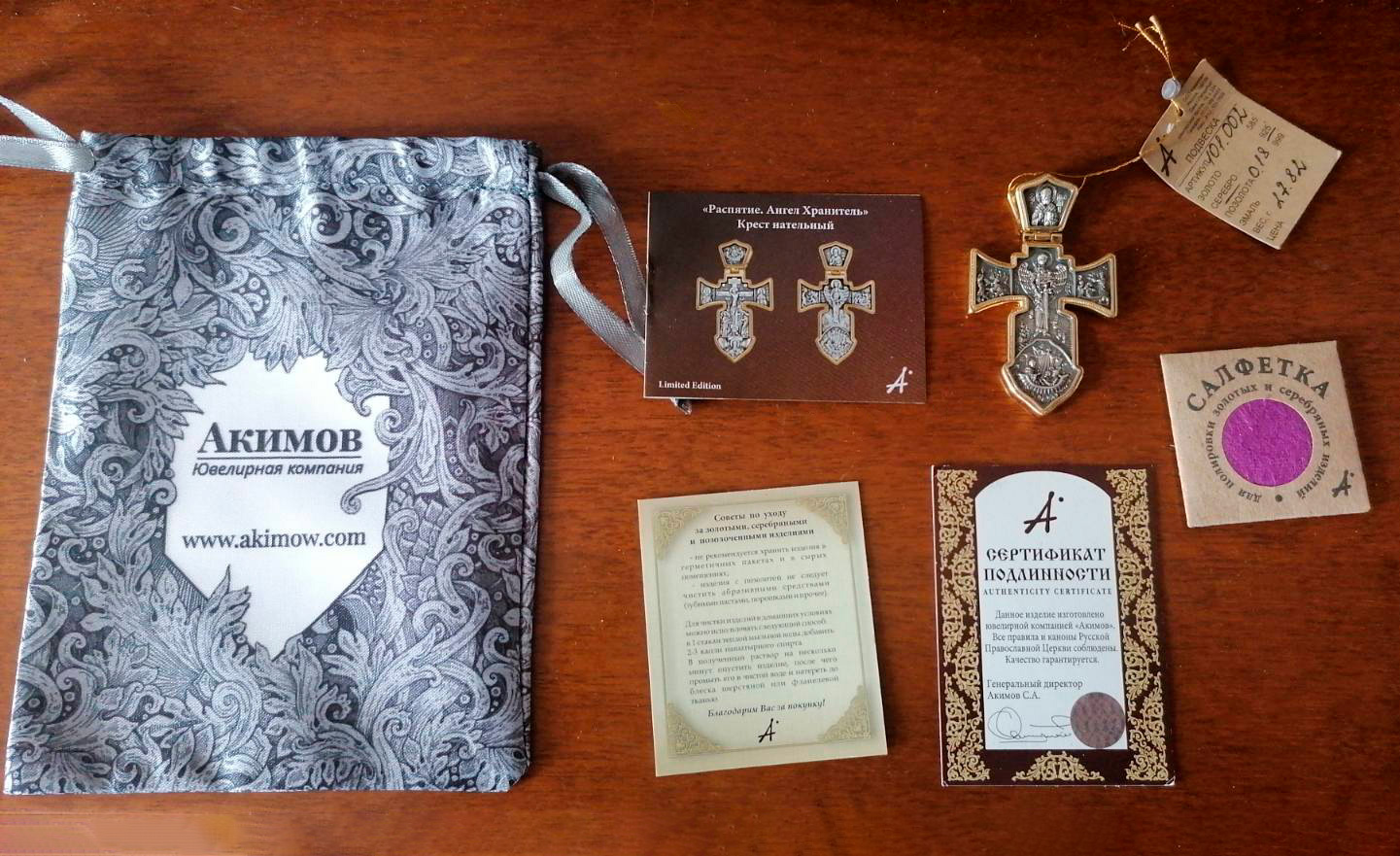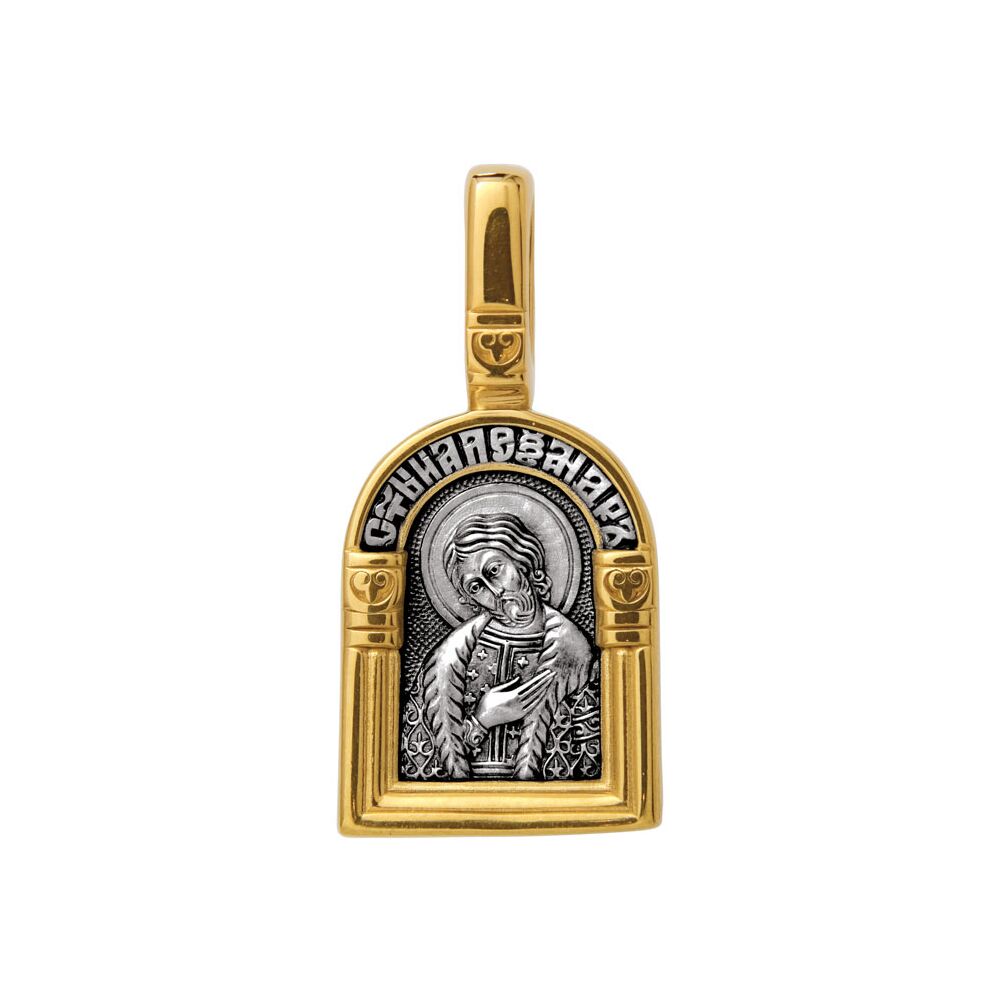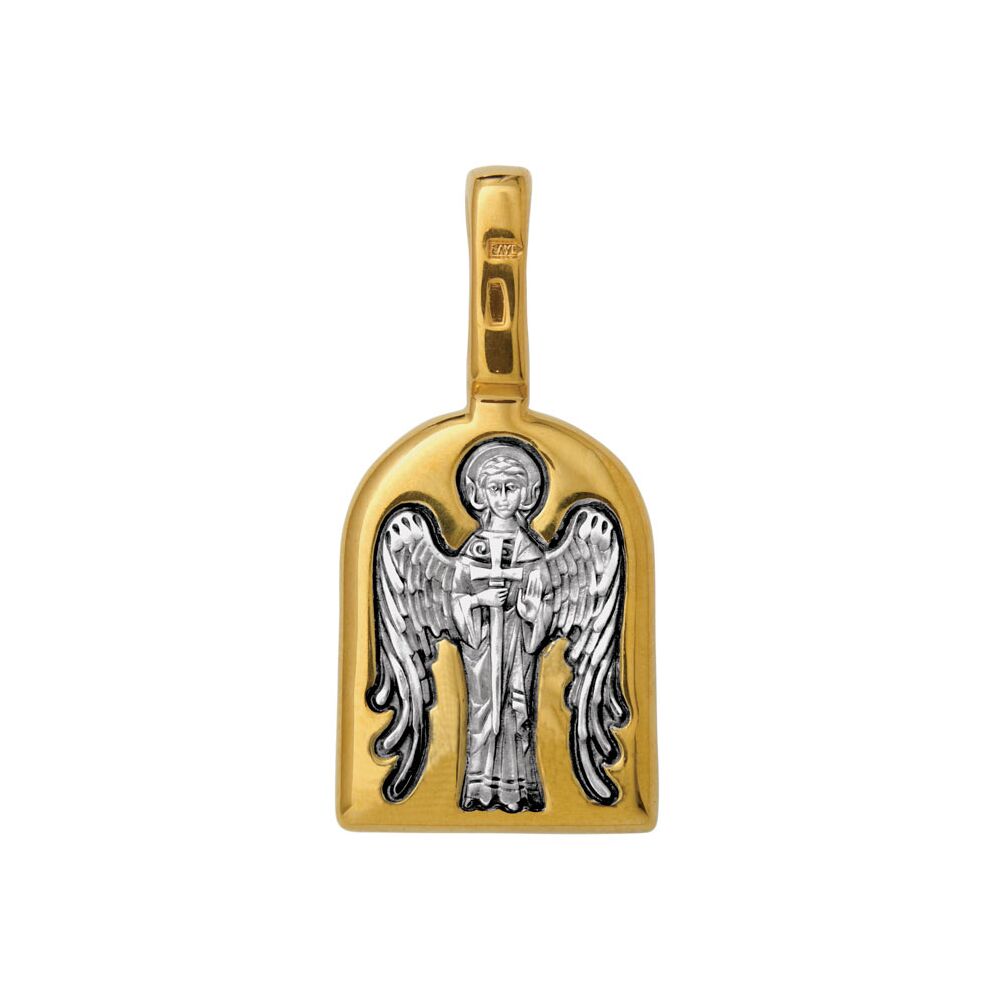Icon Akimov 102.108 «The Most Orthodox Prince St. Alexander Nevsky. Guardian Angel»

- Product with tag and seal
- Certificate of authenticity with hologram
- Product description book
- Jewelry Care Memo
- Canvas bag with the «Akimov» company logo
12 months warrantyGuarantee for all purchased goods in our online store is 12 months.
Tracking numberYou receive a Track Number to track each step of the delivery of your order.
Return and exchange - no problemYou can return the items purchased within 14 days. The goods must be in normal condition and have all the factory packages.
Different payment methodsPayment cards VISA and MasterCard, Google Pay, Apple Pay, Visa Checkout, Masterpass
Best priceWe are proud of our prices, hundreds of customers check them every day, which give a choice to our online store!
- Silver (925). Gilding (999).
- Miniature relief, casting, gilding, niello, handwork.
"The most Orthodox Prince St. Alexander Nevsky was born on May 30,1220 in Pereaslav. His father Yaroslav christened Theodore was younger son of Vsevolod III, the Big Nest. His mother Theodosia was the daughter of Igor, Prince of Ryazan. In 1227 Prince Yaroslav was asked to reign over Novgorod, and took sons Theodore and Alexander with him.
Those were hard times in Russian history: Mongolian hordes encroached from the east, crowds of knights swarming from the west. At this time of terrible danger the Prince St. Alexander – the great warrior and man of prayer, zealot of godliness, and builder of Russian land – was called upon by the Divine Providence for saving Russia.
Taking an advantage of Batu-khan invasion, crowds of crusaders intruded into the bounds of Fatherland. Swedes were the first. Multiple of ships under command of Earl Birger approached Neva. St. Alexander who was before his twentieth, wrestled long with God in the Cathedral of St. Sophia. Archbishop Spyridion blessed him and his host for battle. Leaving the Cathedral Alexander supported his army by words imbueed with belief: “Not in the strength God is, but in truth. Ones are armed, the other being on horsebacks, but we shall invoke our Lord name!” With a small armed force of him the Prince hurried on to superior forces of enemy. But there was a wonderful presage: at sunrise of July 15 a patrol warrior saw a floating boat with Sts. Boris and Gleb in purple robes. Encouraged Alexander led his host with fortitude to the Swedes. “And a great battle with the Roman Catholics, and he slew multitude of them, and hallmarked the leader’s face with a sharp lance”. For this victory on the river Neva won on July 15, 1240 St. Alexander was called Nevsky among the common people.
At the same time German knights took a crusade against Russia. In 1241 by a lightning stroke St. Alexander driving on the Germans made restitution of Russian ancient fortress Koporye. In winter of 1242 he liberated Pskov, and on April 5 gave an offensive battle to the Teutonic Knights on Peipus ice (Chudskoye Lake). Crusaders were crushed completely. The name of St. Alexander became famous all over Holy Russia.
Western bounds of Russian land were guarded firmly, and time came to secure the country against its Eastern enemies. Russia was not able to fight on two fronts. Western enemies with fire and sword inculcated Catholicism instead Orthodoxy, Eastern ones demanding only gold. Therefore in 1242 venturing to start diplomatic negotiations St. Alexander Nevsky together with his father Yaroslav left for the Horde. The Lord crowned the Holy mission of Russian land defenders with success, but that needed years of labors and sacrifices. Prince Yaroslav laid his life for that. But he entrusted the son with the union with the Golden Horde. And St. Alexander Nevsky continued to strengthen this union at that time necessary for prevention of new devastation of Russia.
St. Alexander became autocratic Grand Prince of whole Russia. In 1253 he repelled a new inroad to Pskov, in 1254 году concluded a treaty of border peace with Norway, in 1256 launched a campaign against the Finns, besides supporting Batu-khan in his struggle with Mongolia. In 1256 Batu-khan died. The Prince for the third time went to Sarai to confirm peaceful relations of Russia and the Horde with new khan Berke. In 1261 painstakings of St. Alexander and Metropolitan Cyril were crowned with success: Russian Orthodox diocese was established in Sarai, the Golden Horde metropolis.
There came the age of pagan East great adaptation to Christianity, that being Russia historical mission fatefully divined by St. Alexander Nevsky. After his fourth trip to to Sarai St. Alexander fell ill. Not far away from Vladimir, in the monastery of Gorordets the Prince-zealot of godliness commended his spirit to the Lord on November 14, 1263, finishing his laborious course of life with the vows of schema under the name of Alexis. His holy body was carried to Vladimir, the funeral train moved for nine days, the body remaining undecayed. On November 23 he being interred in the Monastery of the Nativity of the Mother of God in Vladimir God revealed a “marvelous wonder worthy of remembrance”. According to a vision the incorruptible relics of the most Orthodox Prince were opened up in 1380 before the Kulikovo Battle. At the same time the local observance was established. The general ecclesiastical Apotheosis of St. Alexander Nevsky was first officiated under the Metropolitan Macarius at the Moscow Council in 1547.
On September 12 (August 30), 1721 prolonged and exhausting war with Sweden finished with a peace treaty that Peter I made in Nistadt. It was decided to consecrate that day by moving the relics of the most Orthodox Prince Alexander Nevsky from Vladimir to Petersburg, the new Northern capital. On September 12, 1724 the relics were placed in the Trinity cathedral of the Alexander Nevski monastery where they dwell up to this day.
The most Orthodox Prince St. Alexander Nevsky is commemorated on September 12 (August 30) and December 6 (November 23)."
No posts found





